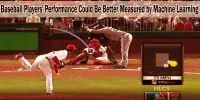The resale ticket market also appeals to sports fans who regularly buy season tickets, according to new research co-authored by Yanwen Wang, an assistant professor at the University of British Columbia’s Sauder School of Business.
The act of reselling tickets for entrance to events is known as ticket resale (also known as ticket scalping or ticket touting). Tickets are purchased from authorized vendors and then resold at a price set by the person or corporation who owns the tickets. Depending on demand, which tends to fluctuate as the event date approaches, tickets sold through secondary sources may be sold for less or more than their face value.
Season ticket holders can recuperate expenses by selling unnecessary tickets on resale ticket markets, also known as secondary ticket markets. They also create an alternate supply of tickets, reducing the need for people to commit to a season pass. It turns out that this isn’t only good for the fans; it’s also good for the team’s bottom line.
Since sports teams earn significant portions of their revenues from season ticket holders, we wanted to find out how secondary markets actually impact their behavior.
Yanwen Wang
When the quantity of tickets accessible through authorized ticket sellers for a certain event runs out, the event is declared “sold out,” which raises the market value of any tickets available through secondary dealers. In both sporting and musical events, ticket reselling is frequent.
“Since sports teams earn significant portions of their revenues from season ticket holders, we wanted to find out how secondary markets actually impact their behavior,” said Wang. “Our research reveals that sports fans are more likely to purchase season tickets when there is a secondary market because they know they can sell them easily. This in turn increases a sports team’s revenue by at least seven percent per year.”
This is a modest estimate, according to Wang, because it excludes additional revenue streams such as parking, refreshments, and product sales. She goes on to say that, because sports teams have high fixed expenditures, low marginal costs, and perishable inventory such as food supplied at concessions, increasing income might have a big impact on their profitability.
Wang and her colleagues looked at a big-league baseball club in the United States for this investigation. They looked at the behavior of 1,924 consumers who bought season ticket packages at least once over a six-year period and saw 481 games. To determine if each ticket was utilized for attendance, listed, resold, or forgone, they looked at the ticket type, the price paid, ticket use, and ticket resales.
Re-sellers may sell tickets for popular events with sold-out tickets for several times the face value. If re-sellers purchase tickets and they are not sold out, they will lose money. The unauthorized resale of tickets is prohibited in several countries.
Constraints on ticket pricing, such as minimum price floors, which determine the lowest price at which a ticket may be offered, have a negative influence on season ticket sales, according to the study.
“This is a complex issue because price floors may be motivated by a sports team’s desire to protect brand equity,” said Wang. “However, the teams must find ways to balance brand maintenance goals against the benefits of providing more value to the team’s hardcore fans.”
The researchers anticipate that their findings will spur further research into how resale market data might influence ticket price decisions, as well as the impact on non-sports events like concerts.
















